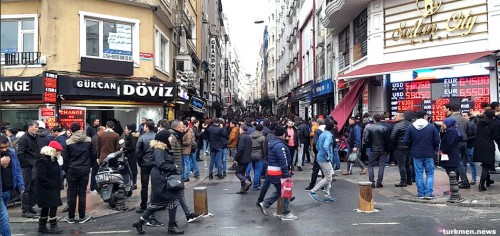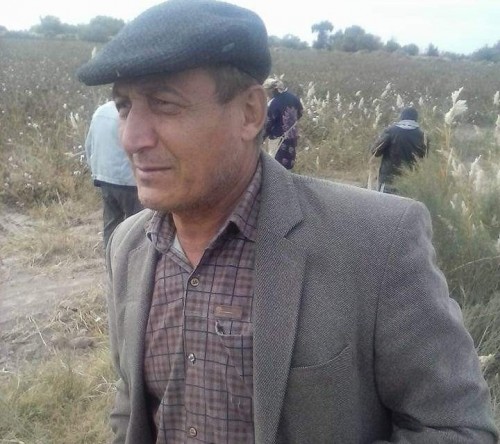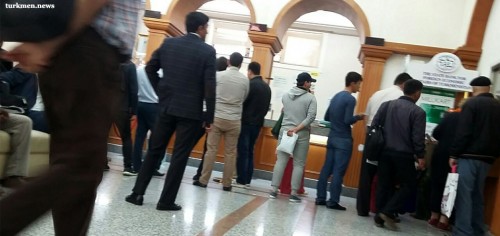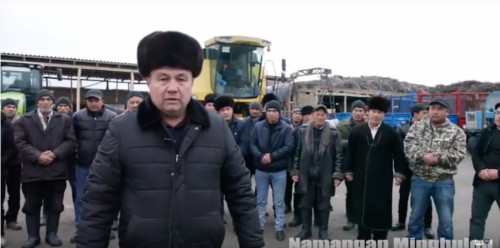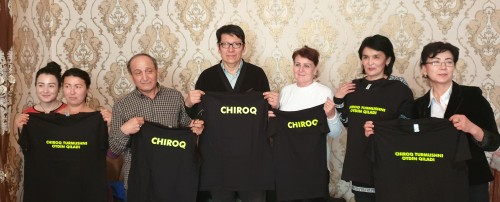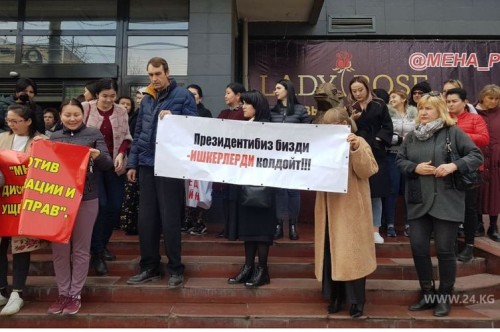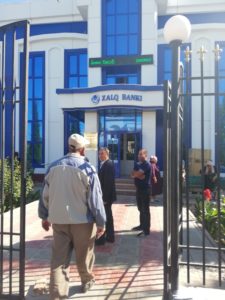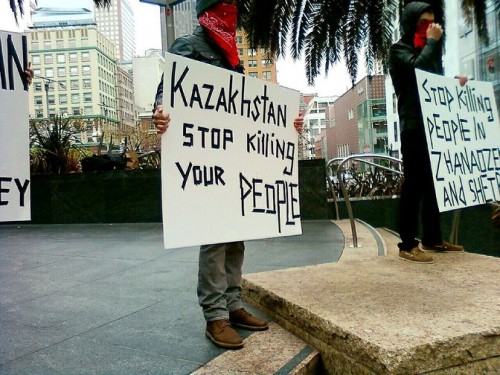Countries
Solidarity campaigns
13 August 2024
Georgia: Support striking workers at Evolution Gaming
5 June 2023
Georgia: Justice for Wolt couriers
10 May 2023
Belarus: Trade union activity is not extremism!
2 November 2019
Kazakhstan: Trade unionist Erlan Baltabay imprisoned - again!
19 November 2018
Kazakhstan: Stop repression and physical attacks on leaders of independent unions; hands off Larisa Kharkova, Erlan Baltabai and Dmitriy Senyavskiy
18 April 2018
MALOKHAT STILL NEEDS YOUR HELP
News
13 April, 2020 / turkmenistan
Turkmenistan: Who Cares about People? Turkmen.news Film on Istanbul Tragedy
The tragic deaths of more than 50 of our compatriots in Istanbul have exposed the bankruptcy of Turkmenistan’s official slogan “The state is for the people!” The state, or to be more exact its authorities, could not give a damn about the people. In March more than fifty citizens of our country – migrant workers in Turkey – were poisoned by bootlegged alcohol. Turkish media reported that the Turkmen workers were trying to protect themselves from coronavirus…
06 April, 2020 / uzbekistan
FAILURE TO REGISTER – PLEASE SUBMIT AGAIN: UZBEK HUMAN RIGHTS NGO REJECTED ONCE MORE
The latest refusal by the Uzbek authorities to register Chiroq, an independent human rights organization, was not only disappointing but anticipated. Human rights activist and founder of Chiroq, Azimbay Ataniyazov, received confirmation from the Ministry of Justice in Karakalpakstan on 31 March that his organization had failed to comply with several laws pertaining to NGOs and provided a list of amendments to be made for the next submission – the third in three months. The first application was rejected in January 2020.
03 April, 2020 / turkmenistan
Turkmen Banks Stop Paying Out Dollars
From April 1, employees of foreign companies in Turkmenistan who are paid in US dollars can withdraw their cash only in manats converted at the state exchange rate. The Central Bank of Turkmenistan has told the country’s financial institutions to stop issuing dollars in cash to employees whose salaries are paid into their accounts in hard currency. Salaries will continue to be transferred into these employees’ accounts in dollars, but they will no longer be able to withdraw those dollars.
01 April, 2020 / uzbekistan
14 March, 2020 / uzbekistan
Regulation of NGOs in Uzbekistan: Control or Partnership?
«Unnecessary regulation of the non-governmental non-profit sector, the maintenance of bureaucratic hurdles and the prevalence of the control functions over building an equal social partnership – all together impede the development of civil society in Uzbekistan», experts Dilmurad Yusupov and Oybek Isakov note in their article for CABAR.asia.
06 March, 2020 / uzbekistan
Tricks, Threats and Deception: Registering an NGO in Uzbekistan
For anyone following the reform process in Uzbekistan, it is apparent that the country is changing rapidly, particularly with regard to the economy. As foreign investors queue up to take advantage of a new business-friendly environment, civil society remains chained to a totalitarian legacy that shows little respect for human rights. Today, it takes about 30 minutes to register a business in Uzbekistan while an NGO can wait for months, even years.
03 March, 2020 / kyrgyzstan
Tenants of Caravan shopping center hold rally in Bishkek
Tenants of Caravan shopping center hold a rally in Bishkek. Protesters addressed the President Sooronbai Jeenbekov. They ask the head of state to protect them and not to deprive them of their jobs.
08 February, 2020 / uzbekistan
The Accountability Gap: Are Uzbek Bank Officials Really Organizing Nationwide Forced Labor?
The Ministry of Employment and Labor Relations of Uzbekistan has published a list of officials who were given administrative punishments for the use of forced labor during the 2019 cotton harvest.According to the document, 43 officials were punished during the period October 2019 to February 2020 according to article 51 of the administrative code: “administrative coercion to work, except as otherwise provided by law”. The article stipulates the payment of a fine equivalent to between 10 and 30 minimum wages, approximately $230 to $690 US.
14 January, 2020 / kazakhstan
They shot to kill: eight years on from massacre of Kazakhstan’s striking oil workers
Eight years after the infamous massacre of striking oil workers and their supporters at Zhanaozen in western Kazakhstan, human rights defenders in the oil-rich republic are still seeking answers. How many victims were there, on top of the 16 dead and nearly 100 wounded acknowledged by the authorities? Who gave the order to open fire? What was the role of agents provocateurs? And Kazakhstan’s beleaguered trade union movement continues to count the cost of the killings – which brought to an end an eight-month strike, the longest and largest in the country’s history, and heralded a crackdown on all forms of opposition.
21 December, 2019 / turkmenistan

